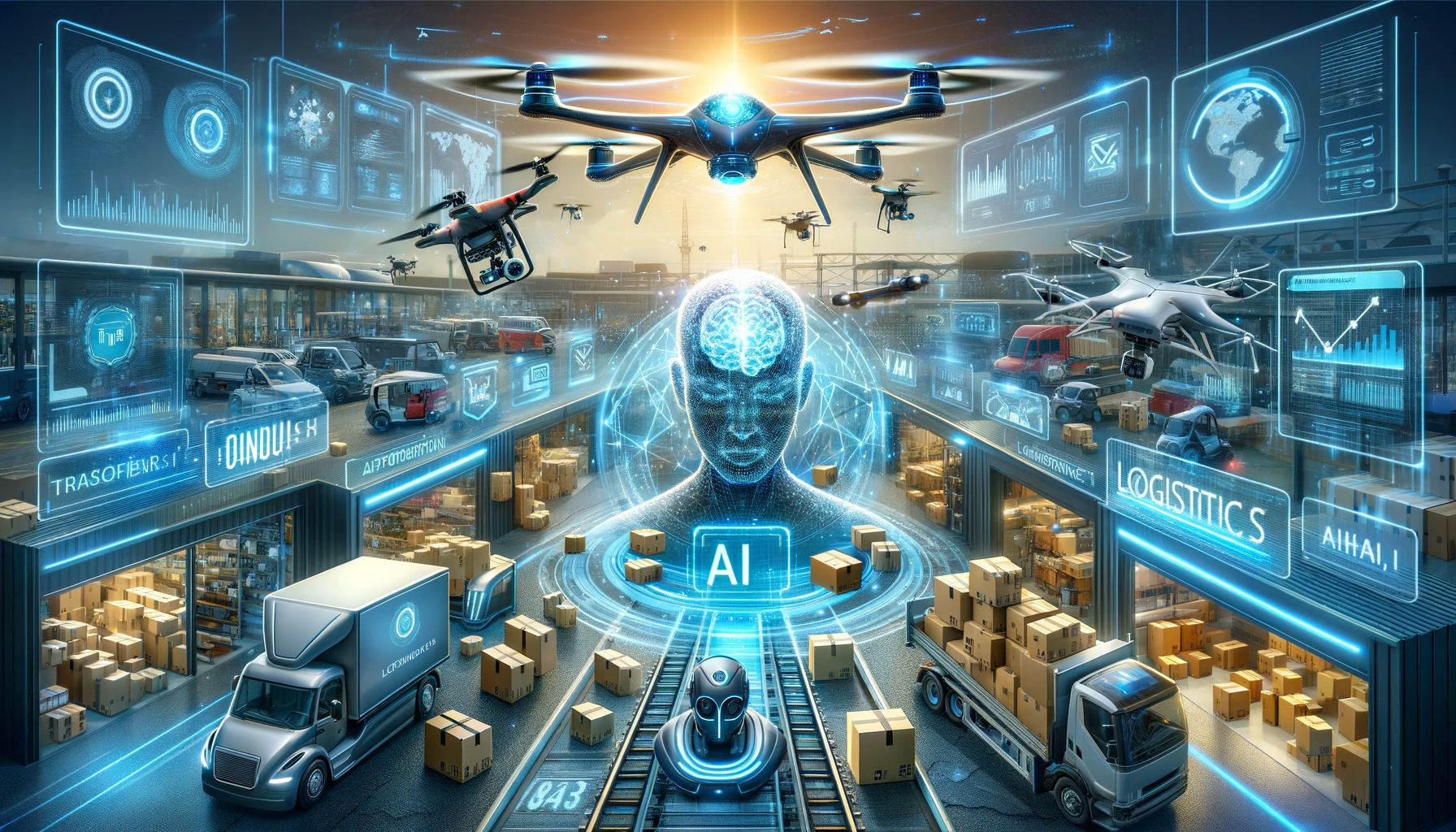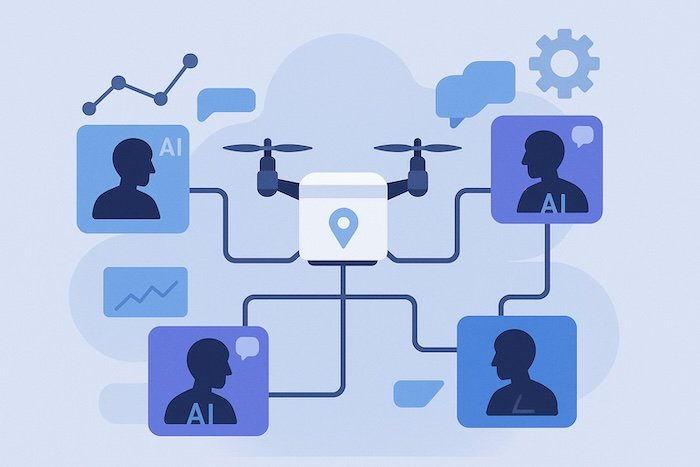The logistics industry is undergoing a monumental shift, driven by the transformative power of Artificial Intelligence (AI). While customer service has traditionally faced challenges in this fast-paced sector, AI is poised to redefine the experience, making it more personalized, transparent, and efficient.
Let’s delve into the exciting ways AI is reshaping customer experience in logistics.
Personalization Takes Center Stage
AI empowers logistics companies to communicate with customers on a personal level. Chatbots and virtual assistants powered by AI offer 24/7 support, answering queries and resolving issues in real-time.
Studies by Helpshift reveal that customers prefer AI-assisted chatbots for their promptness and efficiency. For example, DHL‘s AI-powered chatbot “Ada” has successfully handled over 30 million customer interactions, reducing resolution times and improving customer satisfaction.
Transparency Through Real-Time Tracking
AI-powered tracking systems provide customers with real-time updates on their shipments, fostering trust and transparency. This level of visibility empowers customers to make informed decisions and manage their expectations effectively. Predictive analytics further enhances transparency by anticipating potential delays and proactively communicating them to customers, minimizing inconvenience and frustration.
Demand Forecasting for Customer Delight
AI analyzes vast amounts of data to predict future customer demand, ensuring product availability and timely deliveries. This accuracy empowers logistics companies to fulfill orders efficiently, exceeding customer expectations.

Companies like Amazon and Walmart have successfully leveraged AI for demand forecasting, resulting in reduced inventory costs and improved customer service.
Automated Inventory Management for Faster Fulfillment
AI optimizes inventory levels, ensuring the right products are available in the right locations at the right time. This intelligent management leads to faster order fulfillment, minimizing wait times and boosting customer satisfaction.
A study by McKinsey & Company highlights that AI-driven inventory management can lead to a 20-50% reduction in lead times and a 10-20% decrease in inventory costs.
AI-Enhanced Last Mile Delivery
Last-mile delivery is often the most critical touchpoint in the customer journey. AI optimizes delivery routes, minimizing travel times and reducing delivery costs. This efficiency translates to faster deliveries and happier customers. Furthermore, the future holds the exciting potential of autonomous delivery vehicles and drones, further revolutionizing last-mile delivery and enhancing customer convenience.
Continuous Improvement Through Feedback
AI tools analyze customer feedback in real-time, identifying areas for improvement and driving continuous service enhancement. Machine learning plays a key role in this process, constantly refining AI models to better anticipate and address customer needs. UPS, for example, leverages AI-powered analytics to analyze customer feedback and tailor their services to individual customer preferences.
Ethical Considerations and Data Privacy
As AI becomes increasingly integrated into customer interactions, ethical considerations and data privacy concerns rise to the forefront. Logistics companies must ensure the ethical use of AI, avoiding bias and discrimination. Open communication and transparent data practices are essential to building customer trust and ensuring data privacy.
Preparing for an AI-Powered Future
To capitalize on the potential of AI, logistics companies must strategize their AI integration. This includes investing in the right technology, training employees on AI-driven systems, and fostering a culture of innovation.

By embracing AI and equipping their workforce with the necessary skills, companies can pave the way for a future of exceptional customer service in logistics.
The Future of Customer Experience in Logistics
AI is not merely transforming logistics operations; it is redefining customer expectations and experiences. By leveraging AI for personalization, transparency, real-time updates, and proactive communication, logistics companies can create a customer-centric ecosystem that delivers convenience, efficiency, and ultimately, a delightful experience. As AI continues to evolve, the future of customer experience in logistics is brimming with potential, promising a seamless and personalized journey for every customer.
As the logistics industry undergoes a transformative shift with AI at the helm, companies like Wahyd are actively adopting these innovative technologies to not only stay competitive, but to be at the forefront of the tech evolution.
The commitment of Wahyd Logistics to AI innovation extends beyond practical applications. They are actively involved in researching and developing cutting-edge AI solutions for the logistics industry. Their focus on ethical AI use and data privacy ensures that customer trust and security remain paramount.
By actively embracing AI and placing customer experience at the heart of their operations, Wahyd is positioned to become a leader in the AI-powered logistics landscape. Their dedication to innovation and customer satisfaction sets a benchmark for the industry, paving the way for a future where logistics are not only efficient and reliable, but also personalized and delightful for every customer.
This is a guest contribution by Mr Ali Tahir, who is the Global Marketing Manager at Wahyd Group. For any queries he can be reached out directly to at****@***yd.com.















